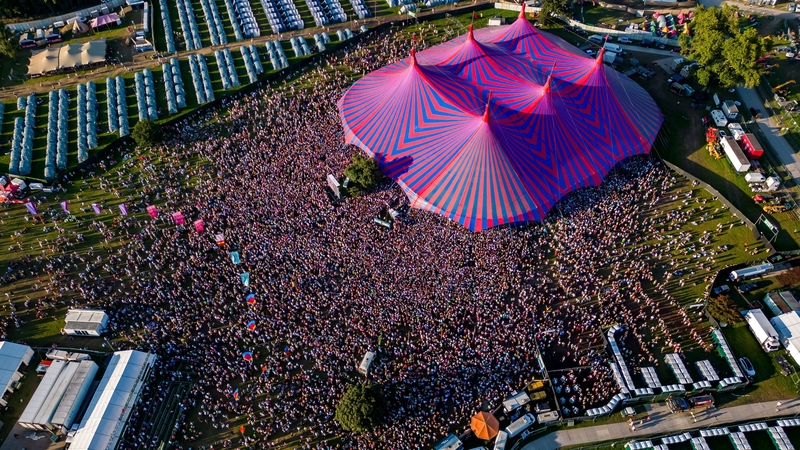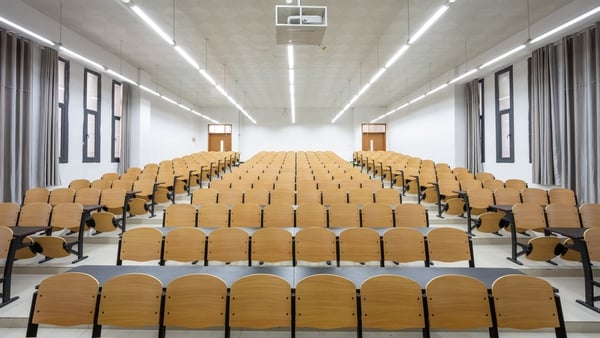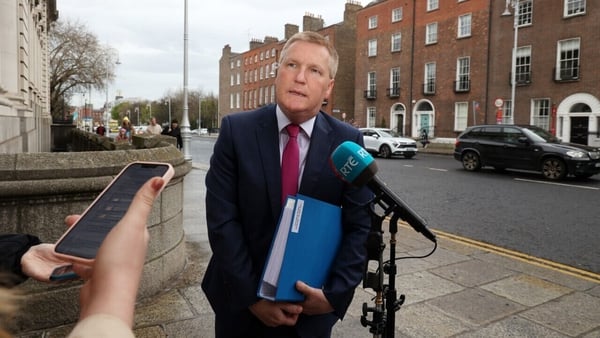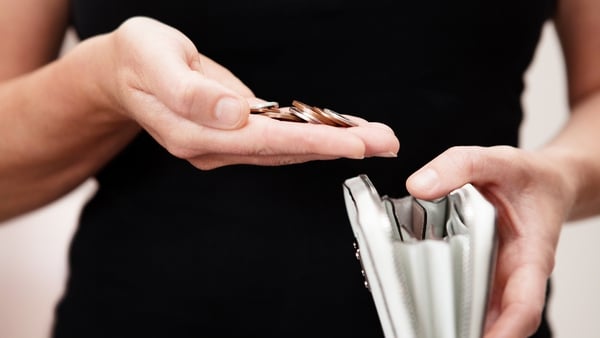Analysis: it's good news if the event takes place in your town, but the benefits of the bounce are short-term at best
Music is one of the most important things in society. We often don't even realise how important it is, but music helped us learn the alphabet, provides us with company on long journeys, and TV shows, film, and football matches would seem odd without musical accompaniment.
Despite this cultural importance, people still seem vaguely dismissive of the economic value of music. Yes, some musicians are very wealthy, but most parents would shriek in horror if their child told them they want to be a rockstar. This is because performing music is hard, but making money from performing music is even harder – I can attest to this from personal experience. Most people will never make much money from playing music, but do we all indirectly benefit from it? Do musical performances boost economic activity?
We need your consent to load this rte-player contentWe use rte-player to manage extra content that can set cookies on your device and collect data about your activity. Please review their details and accept them to load the content.Manage Preferences
From RTÉ 2fm's Jennifer Zamparelli interview, interview with Aisling Ryan from Ryan's Cleaning about the big clean up that takes place after a music festival finishes
The short answer is yes. Any graduate of economics will remember (with fondness I'm sure) the equation for short-run economic growth: Y=C+I+G+NX. The key component, in the case of concerts, is C (consumption). People spend money to go to concerts and this pays the wages of musicians, but it also provides money for the local economy.
Concert goers will pay for drinks, food, travel and even accommodation when attending a concert. This puts money in the pockets of business owners and their employees. Such benefits to local economies are well documented within economic literature. The town of Stradbally in Co. Laois will no doubt derive benefit from an increase in consumption this month because of the Electric Picnic.
The only issue about the benefits of these concerts and festivals is that they don't last long. Similar to sporting events, concerts tend to provide local economies with a short sharp increase in consumption, but the increase comes as soon as it goes.
We need your consent to load this rte-player contentWe use rte-player to manage extra content that can set cookies on your device and collect data about your activity. Please review their details and accept them to load the content.Manage Preferences
From RTÉ Radio 1's Today with Claire Byrne, Dr Michael Murphy from IADT on the increasing anger over Ticketmaster's monopolistic role in the live music business
The ideal type of economic growth which economists try to advocate for is long term economic growth. This is the steady and consistent increase in capital stock and employment over time via investment in capital and technological advancement. This provides long-lasting economic returns for any economy. For years, Ireland's low corporation tax policy has to this type of economic growth as multiple multinational companies have come to our shores to set up and provide long-standing employment for our citizens.
This is not the type of growth you get from concerts. When a concert or festival takes place in an area in Ireland, the revenue of businesses in the locality of the area will increase for the night of the concert, but the musicians and concert attendees leave the next day and so does their money. There is no capital, employment, or additional consumption left the following day – it's all short-run growth.
The difference between short- and long-run growth can be considered the same as the difference between receiving money in your wage packet and receiving money in your birthday card. In both cases, it’s still money, but in one case you will receive the money the following week as well.
We need your consent to load this rte-player contentWe use rte-player to manage extra content that can set cookies on your device and collect data about your activity. Please review their details and accept them to load the content.Manage Preferences
From RTÉ Radio 1's Today With Claire Byrne, will rising costs mean an increase in festival ticket prices?
With this said, concerts still provide regular enough increases in custom for business owners throughout the country. Most of our cities have long established theatres, arenas and marquees which are regularly used for concerts throughout the year and do provide benefits for the economy. The shops and cafes of Stradbally will obviously welcome the boost in business they received in the last few days from the Electric Picnic's 70,000 attendees, but they would also probably tell you that the same festival doesn't do much to help them for the rest of the year.
This shouldn't be a reason to stop or reduce music festivals. The value of concerts and live music isn’t simply restricted to economic returns. Music provides cultural value to our society as well as financial. We shouldn’t need to validate having live music events (or any cultural events) off the basis that they contribute towards an economic goal. The joy and entertainment we receive from attending live music events should be sufficient.
The views expressed here are those of the author and do not represent or reflect the views of RTÉ






